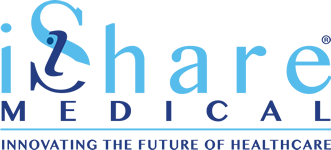On July 25th CMS published a proposed rule for mandatory bundled payments program for cardiac care in 98 metropolitan statistical areas (MSA’s). The bundle includes patients who have suffered heart attacks (myocardial infarctions) and who undergo coronary artery bypass graft (CABG) surgery. The new mandatory bundling program serves as a double whammy to providers who were hit last November by CMS with imposed mandatory bundled payments for total hip and knee replacement procedures in 67 MSA’s.
Secretary Sylva Mathews Burwell announced on July 25th that “Today, the Department of Health & Human Services proposed new models that continue the Administration’s progress to shift Medicare payments from quantity to quality by creating strong incentives for hospitals to work together with physicians and other providers to avoid complications, prevent hospital readmissions, and speed recovery.”
Traditionally, providers have been paid based on a fee for service payment system that rewarded providers who delivered a higher volume of services without regard to the quality or outcome.
CMS has defined four Bundled Payment Models referred to as Model 1, 2, 3, and 4 that replace paying for volume with paying for value. Model 1 ended on March 31, 2016. In Models 2 and 3, payments are made under fee for services for all providers that provide care during the episode regardless of the organization. At the end of the episode, the total of the payments made to all providers are compared to a target price. If the payments made exceed the target price, then the provider has to pay CMS the amount of the excess payment. Under Model 4, one payment to one provider, usually a hospital, that includes all providers who provide care during the episode of care. Providers who provide care submit a zero bill. At the end of the episode the hospital who was the recipient of the payment is responsible to reimburse the other providers out of the payment that they received.
The transformation from volume to value is not easy.
On April 16, 2016 the Medicare Access & CHIP Reauthorization Act (MARCA) was passed into law laying out the path for transformation from Volume to Value. MACRA gives physicians two choices:
- Merit Based Incentive System (MIPS)
- Alternative Payment Models (APM)
Billed as “the doctor fix bill” many integrated delivery systems are scrambling to figure out:
- How these new rules will affect the physicians and other providers that they employ and
- What the new physician rules might mean to the future of facility reimbursement.
CMS left facilities some clues. Both physician payment models have the goals of linking reimbursement to outcomes and creating value. Payment for services will be based on transitioning from fee for services to value based care in three areas: Incentives, Care Delivery, and Information Sharing.

Information sharing is critical to the success of bundle payment models because patients often get care during the same episode from multiple provider organizations. In the past, if a provider didn’t have information about a service such as a lab, test, encounter, or procedure that was performed by another provider organization, the provider would simply repeat the service. But, under bundle a payment repeating services results in no additional payment and cannibalizes profits. Bundle payments is ushering in a new more collaborative approach to patient care making sharing information and coordinating care across organization boundaries the new norm.
iShare Medical can help you get the data you need to succeed under bundled payments! iShare Medical is an EHNAC Fully Accredited DirectTrust Anchor and Health Information Services Provider (HISP). iShare Medical offers:
- Health Information Services including RESTful API for HISP services
- iShare Medical Directory of electronic end point to facility finding the provider to whom you wish to exchange data; our Directory contains nearly 4 million healthcare providers. Available as a standalone webservices application or via a RESTful API.
- iShare Medical Messaging; a webservices front end for HISP Services.
- iShare Medical’s remote ID proofing and issuance of iShareID Direct Address for patient and providers that are cross-certified by the Federal Bridge Certificate Authority (FBCA). FBCA is required under the Federal Health Architecture by 23 government agencies including CMS, Veterans Administration, Department of Defense, Indian Health Services, and Center for Disease Control.
Our network spans over 58,000 health care organizations, 1.2 million Direct Addresses and 50 Health Information Exchanges. Join iShare Medical and find out what your peers in our network already know: iShare Medical has proven 100% interoperability in the DirectTrust Network and can help you get the data you need to succeed!
iShare Medical has proven 100% interoperability in the DirectTrust Network https://www.isharemedical.com/healthcare-providers/ishare-medical-has-proven-interoperability and can help you get the data you need to succeed!
To find out more, call iShare Medical today at (816) 249-2555 ext 1.
Visit us online at https://www.isharemedical.com/healthcare-providers
Let’s iShare Medical Records today!
